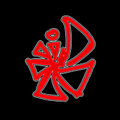Template:Selected anniversaries/December 22: Difference between revisions
No edit summary |
No edit summary |
||
| Line 4: | Line 4: | ||
File:Cornelis de Houtman.jpg|link=Cornelis de Houtman (nonfiction)|1551: Explorer [[Cornelis de Houtman (nonfiction)|Cornelis de Houtman]] publishes "The Legend of Neptune Slaughter, a Tale of Monstrous Disaster from Beyond the Islands and the Oceans of the Furthest East." | File:Cornelis de Houtman.jpg|link=Cornelis de Houtman (nonfiction)|1551: Explorer [[Cornelis de Houtman (nonfiction)|Cornelis de Houtman]] publishes "The Legend of Neptune Slaughter, a Tale of Monstrous Disaster from Beyond the Islands and the Oceans of the Furthest East." | ||
||1640: Jean de Beaugrand dies ... lineographer of the seventeenth century. Though born in Mulhouse, de Beaugrand moved to Paris in 1581. He also worked as a mathematician and published works on geostatics. He is credited with naming the cycloid. No DOB. Pic: coat of arms. | |||
||1660: André Tacquet dies ... priest and mathematician ... adhered to the methods of the geometry of Euclid and the philosophy of Aristotle and opposed the method of indivisibles. Pic: book cover. | ||1660: André Tacquet dies ... priest and mathematician ... adhered to the methods of the geometry of Euclid and the philosophy of Aristotle and opposed the method of indivisibles. Pic: book cover. | ||
|| | ||1693: Elisabeth Catherina Koopmann Hevelius dies ... one of the first female astronomers, and called "the mother of moon charts". She was also the second wife of fellow astronomer Johannes Hevelius. Pic. | ||
||1693: Elisabeth | File:Elisabeth_Hevelius_(1673).png|link=Elisabeth Hevelius (nonfiction)|1693: Astronomer [[Elisabeth Hevelius (nonfiction)|Elisabeth Hevelius]] dies. One of the first female astronomers, Hevelius is known as "the mother of moon charts". | ||
File:Sir Richard Arkwright by Mather Brown 1790.jpg|link=Richard Arkwright (nonfiction)|1732: Inventor, engineer, and businessman [[Richard Arkwright (nonfiction)|Richard Arkwright]] born. Later in his life Arkwright will be known as the "father of the modern industrial factory system." | File:Sir Richard Arkwright by Mather Brown 1790.jpg|link=Richard Arkwright (nonfiction)|1732: Inventor, engineer, and businessman [[Richard Arkwright (nonfiction)|Richard Arkwright]] born. Later in his life Arkwright will be known as the "father of the modern industrial factory system." | ||
Revision as of 07:41, 17 January 2020
1550: Philosopher and academic Cesare Cremonini born. His work will promote rationalism (against revelation) and Aristotelian materialism (against the dualist immortality of the soul) inside scholasticism.
1551: Explorer Cornelis de Houtman publishes "The Legend of Neptune Slaughter, a Tale of Monstrous Disaster from Beyond the Islands and the Oceans of the Furthest East."
1693: Astronomer Elisabeth Hevelius dies. One of the first female astronomers, Hevelius is known as "the mother of moon charts".
1732: Inventor, engineer, and businessman Richard Arkwright born. Later in his life Arkwright will be known as the "father of the modern industrial factory system."
1765: Mathematician Johann Friedrich Pfaff born. He will work on partial differential equations of the first order Pfaffian systems, as they are now called, which will become part of the theory of differential forms.
1858: Composer Giacomo Puccini born. He will be called "the greatest composer of Italian opera after Verdi".
1887: Mathematician and theorist Srinivasa Ramanujan born. He will make substantial contributions to mathematical analysis, number theory, infinite series, and continued fractions, including solutions to mathematical problems considered to be unsolvable.
1894: The Dreyfus affair begins in France, when Alfred Dreyfus is wrongly convicted of treason.
1920: Lecture by William Blake's monster ends in riot, leading to the release of more than fifty thousand fleas from the Human Flea Circus.
2016: Chromatographic analysis of Red Spiral 3 reveals "at least four, possibly five" previously unknown shades of red.









